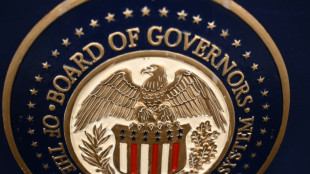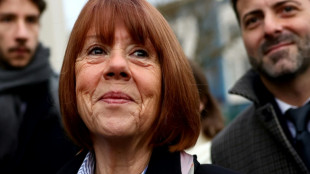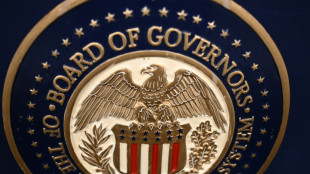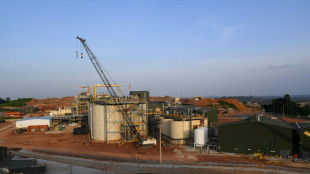

Saudi Arabia 'foils oil tanker attack' after rebels disrupt F1
Saudi forces destroyed explosives-laden boats and launched air strikes in Yemen on Saturday after Huthi rebel drones and missiles hit targets around the country, setting off an inferno at an oil plant within sight of Jeddah's Formula One race.
Three people were killed in the operation against the booby-trapped boats, according to the Saudi-led coalition, which also carried out air raids on the Yemeni cities of Sanaa and Hodeida overnight.
It marked a violent seventh anniversary of the coalition's military intervention in Saudi Arabia's impoverished neighbour Yemen, after the Iran-backed Huthis had seized the capital Sanaa in 2014.
Thousands of people marched in Sanaa on Saturday to denounce a conflict that has killed hundreds of thousands directly or indirectly, according to the UN, and left millions on the brink of famine.
However, there were signs of diplomacy as a senior Saudi official told AFP the rebels had offered a ceasefire and peace talks in exchange for opening up Sanaa's airport and the lifeline port of Hodeida.
"The Huthis put forward an initiative through mediators that includes a truce, opening the airport (Sanaa) and the port (Hodeida) and Yemeni-Yemeni discussions," said the official, on condition of anonymity.
"We are waiting for it to be officially announced because they (Huthis) are constantly changing their words," he added. No immediate comment was available from the rebels.
Four boats laden with explosives were destroyed at Salif, a Red Sea port north of Jeddah, a day after the Yemeni attacks on a televised F1 practice day spooked drivers and threw the race into doubt.
"We targeted four booby-trapped boats in Salif port, which is under preparation, and thwarted an imminent attack on oil tankers," the coalition said, according to state television.
- 'Drivers still concerned' -
Drivers returned to the track for the final practice session after hours of talks with F1 and team officials late on Friday and safety assurances from the Saudi government.
"Drivers are not 100 percent happy (or) fully relaxed," said Ferrari team principal Mattia Binotto. "They are still concerned but they have listened to the reassurance and they understand it's important to stay here and try to race."
Regular media interviews were cancelled on Friday during the talks over the race's future. But the pilots' union, the Grand Prix Drivers Association, said it was a "difficult day for Formula One and a stressful day for us Formula One drivers".
"Perhaps it is hard to comprehend if you have never driven an F1 car on this fast and challenging Jeddah track, but on seeing the smoke from the incident it was difficult to remain a fully focused race driver and erase natural human concerns," a statement said.
During "long discussions", Saudi government ministers "explained how security measures were elevated to the maximum" to allow the race to go ahead, it added.
The attacks on targets including oil facilities, an electrical station and a water plant came as crude prices soar on supply fears following Russia's invasion of Ukraine.
Saudi Arabia, one of the world's biggest oil exporters, has rebuffed calls to pump more oil in a bid to stabilise markets, sticking instead to the steady increases agreed by the OPEC+ alliance, which includes Russia.
Formula One is one of a number of high-profile events brought to Saudi Arabia in recent years, drawing accusations of 'sportswashing' -- using sports events to distract from criticism of the country's human rights record.
It is not the first to witness violence. A French driver was seriously injured in a blast at the Dakar Rally hosted by Saudi Arabia in December. French investigators blamed an explosive device planted on his car.
Earlier this month, Saudi authorities executed 81 people in a single day, prompting condemnation from human rights activists who questioned whether they received a fair trial.
D.Verstraete--JdB



